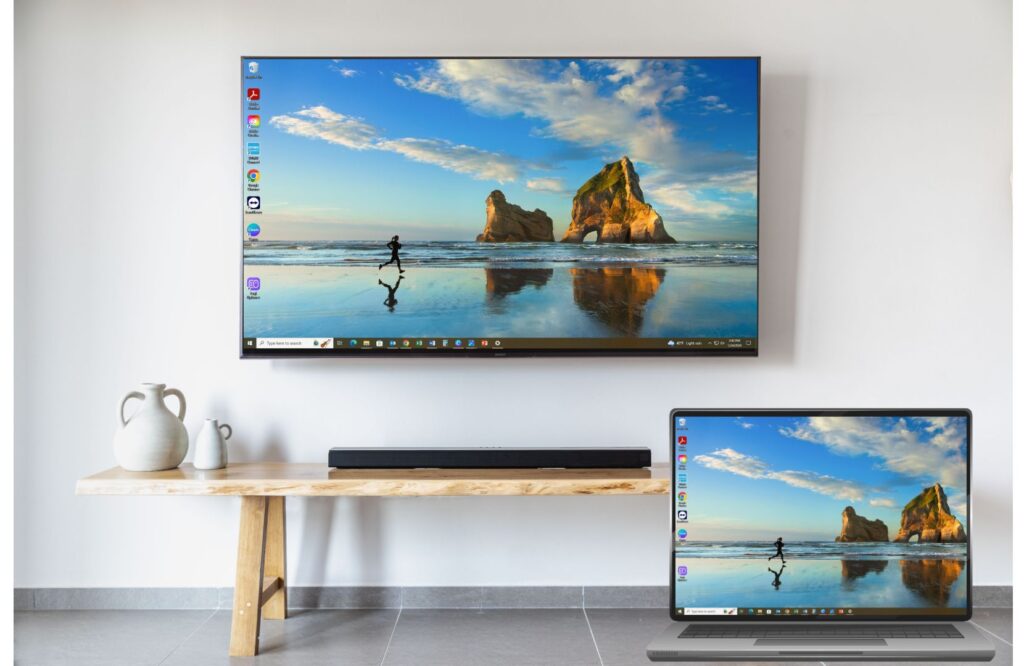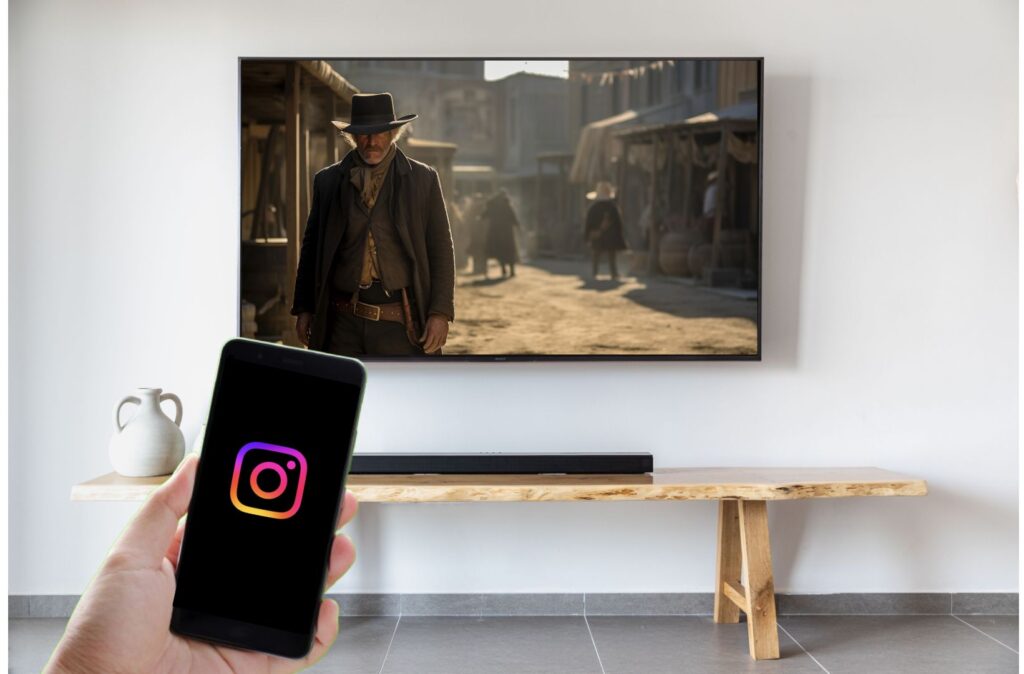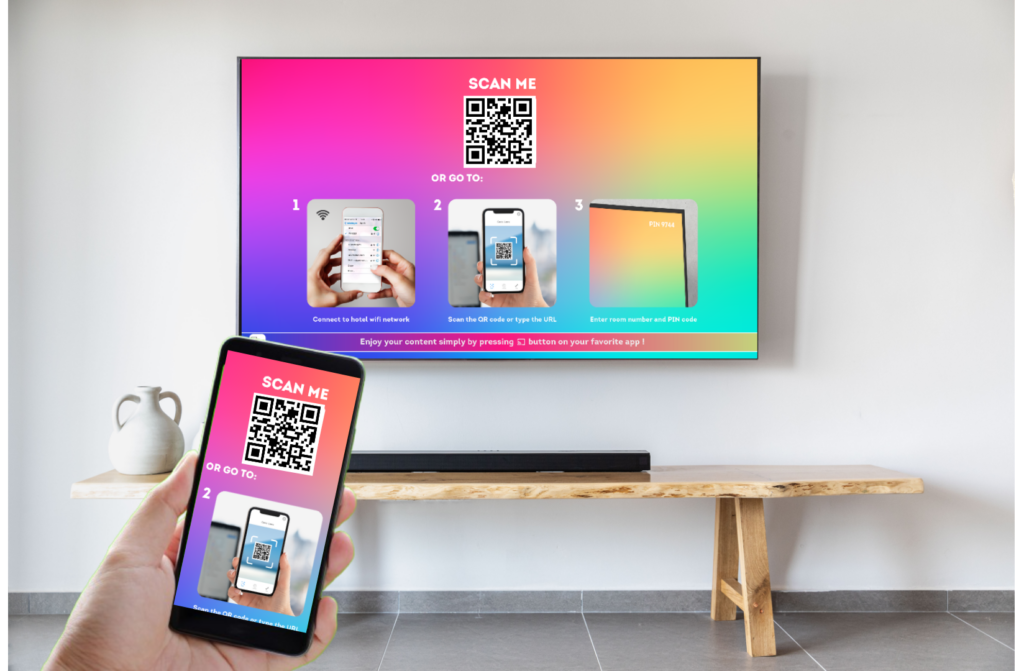Screen Mirroring Vs. Screen Casting in Hotels

As our digital technology continues to grow and improve, so too does our terminology. Terms like “screen mirroring” and “casting” have become commonplace in the hospitality industry. While these terms are often used interchangeably, they refer to distinct methods of sharing content from one device to another. In this post, we’ll delve into the differences between screen mirroring and screen casting, shedding light on their unique features and their implications for hotels and guest entertainment.
What is Screen Mirroring?

Screen mirroring, or sometimes called screen sharing, involves duplicating the entire display of one device onto another, creating an exact replica of what’s on the source screen. This method is particularly useful for sharing presentations, zoom meetings, or gaming. Examples of screen mirroring include apps like Miracast, or wired connections like HDMI and VGA.
Key Characteristics of Screen Mirroring:
- Exact Replication: Screen mirroring reproduces everything on the source device, including the user interface, apps, and content, onto the target display. Any notifications received will be displayed.
- Real-time Interaction: Any action performed on the source device is instantly mirrored on the receiving screen, allowing for real-time interaction.
- Device Compatibility: Screen mirroring is often device-specific and may require both the source and target devices to support the same screen mirroring protocol, such as Miracast or HDMI.
What is Screen Casting?

Screen casting, involves sending content from one device to another without replicating the entire screen. This method is commonly associated with streaming media, allowing users to share videos, music, movies, or other multimedia content to a larger screen while maintaining control over the playback on the source device. An example of screen casting is Google Chromecast, which has become a common solution used in hotels.
Key Characteristics of Screen Casting:
- Selective Content Sharing: Unlike screen mirroring, casting allows users to share
specific content, such as videos or photos, without duplicating the entire
user interface. Only the selected content will be displayed so any
notifications received on the source device will remain private.
- Independent Playback:
Once the content is cast onto the target device, users can continue using
the source device independently without affecting the playback on the
receiving screen. This means they can use their phone or tablet as they
normally would while the content plays on the hotel TV.
- App or Service Dependency: Casting often relies on specific apps or services that
support casting such as Google Chromecast.
Deciding Between Screen Mirroring and Casting in Hotels
The decision between screen mirroring and hotel screen casting depends on the user’s specific needs and the nature of the content being shared. Here are some scenarios where one method might be preferred over the other:
- Screen Mirroring: Ideal for presentations, demonstrating apps, gaming, or sharing the entire user interface of a device. Best used when content sharing is only needed for a short period of time.
- Casting: Perfect for streaming media, sharing videos, or displaying photos while still allowing the sending device to perform other tasks simultaneously. Often used in guest rooms to allow guest casting of movies and TV shows from their personal streaming accounts.
When deciding between mirroring and casting in hotels, it is important to consider the guest experience. Many hotels employ TV casting solutions as a guest entertainment option. This is because guest casting allows guests to play their content onto the TV while still being able to use the host device. Additionally, no guest credentials are saved to the TV, so there is no risk to guests’ streaming accounts.
Casting in Hotels with Hospitality Casting Systems

Hospitality casting solutions, like OnlyCast, utilize the casting capabilities of Google Chromecast to create simple and secure guest casting. OnlyCast only allows guests to cast to their in-room TV; by scanning the QR code, guests are “authenticated” and allowed to cast to the TV. Guests are automatically unauthenticated every day, meaning they cannot cast to their TV after checkout. Without a hospitality casting solution, guests would have access to cast to every TV in the hotel; this is obviously a huge problem for hotels. OnlyCast is a leading casting solution for hospitality. Contact us to learn how a hotel casting solution can improve the guest experience and add value to your hotel.
In Conclusion
In the realm of hospitality, understanding the differences between screen mirroring and casting is crucial for making informed choices about what solution is best for your hotel. Whether you seek to allow guests to replicate their device’s screen or selectively share content, both methods offer unique advantages that cater to a variety of guest preferences. As technology continues to advance, these distinctions will likely become even more refined, providing hotels with increasingly tailored solutions for seamless content sharing and guest entertainment.